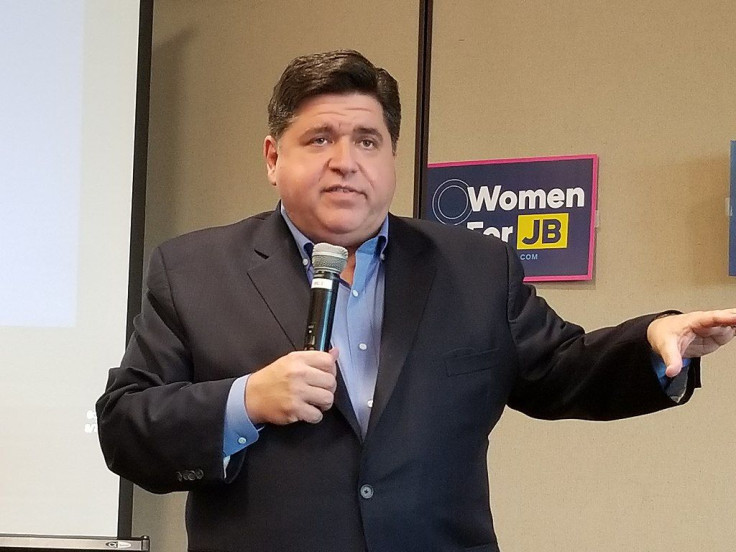Illinois Governor Announces Statewide Shelter-In-Place Order To Fight Spread Of Coronavirus

KEY POINTS
- A shelter in place order for Illinois takes effect Saturday, making Illinois the second state to impose the restriction
- Nonessential businesses were asked to close
- Pritzker warned parents Thursday schools could remain closed beyond the end of the month
Illinois Gov. J.B. Pritzker Friday ordered Illinois' 12 million residents to shelter in place order to fight the spread of COVID-19, making the Land of Lincoln the second state to do so.
Pritzker told a press conference, flanked by Chicago Mayor Lori Lightfoot, the order would take effect Saturday at 5 p.m. CDT through April 7. California Gov. Gavin Newsom took similar action Thursday. New York Gov. Andrew Cuomo ordered all nonessential businesses to shut down and criticized businesses that failed to heed the request, saying this is not "life as usual."
Under Pritzker's order, Illinois residents will need to stay in their home unless there is an “essential reason” to go out. These “reasons” can include work, medical appointments, the need for groceries, medicine or gasoline, and to walk the dog. He said all nonessential businesses should cease operations.
No roads were to be closed after the order goes into effect.
“As epidemic has progressed, we have had to make some hard decisions,” he said in explaining his reasoning. He said he’s been consulting with doctors, epidemiologists and mathematicians to determine the best way forward.
There’s “one inescapable conclusion: To avoid the loss of tens of thousand of lives we must enact a statewide stay at home order. … Left unchecked cases in Illinois will rise sharply.”
Pritzker said he didn’t come to the decision easily, casting it as a choice between saving lives and saving livelihoods. “If you don’t have a life, you don’t have a livelihood,” he said.
Pritzker first spoke about the possibility of a shelter-in-place order while addressing school closings on Thursday. On Friday he extended the closures to April 8. Lightfoot Thursday ordered schools closed through April 21.
Pritzker assured residents there's no need to overreact about a possible order.
“There is no need to run out and hoard food, gas and medicine,” Pritzker told reporters. “Buy what you need within reason. There is enough to go around, as long as you do not hoard.”
Lightfoot said people should think of the order as "safer at home." She emphasized the order is not a lockdown or martial law.
Shelter-in-place orders have already been imposed in some areas of Illinois, most recently being Oak Park just west of Chicago. Mayor Anan Abu-Tlab issued the order at 12 a.m. Friday after two physicians at Rush Oak Park Hospital’s emergency room tested positive for COVID-19.
Lt. Col Bradford Leighton of the Illinois National Guard also reassured residents while troops have been deployed, they will not play a role in enforcing a possible shelter-in-place order. He said that he understands people’s concern, but the troops deployed are mostly “healthcare professionals” helping to treat anyone with COVID-19.
“We are your friends, neighbors and co-workers,” Leighton said. “We’re fellow worshippers at your church, synagogue, mosque or wherever you worship. We are part of the community. We are you. We are not going to invade Chicago. We are here to help.”
The state has confirmed at least 585 confirmed cases of coronavirus and five deaths.

© Copyright IBTimes 2024. All rights reserved.





















